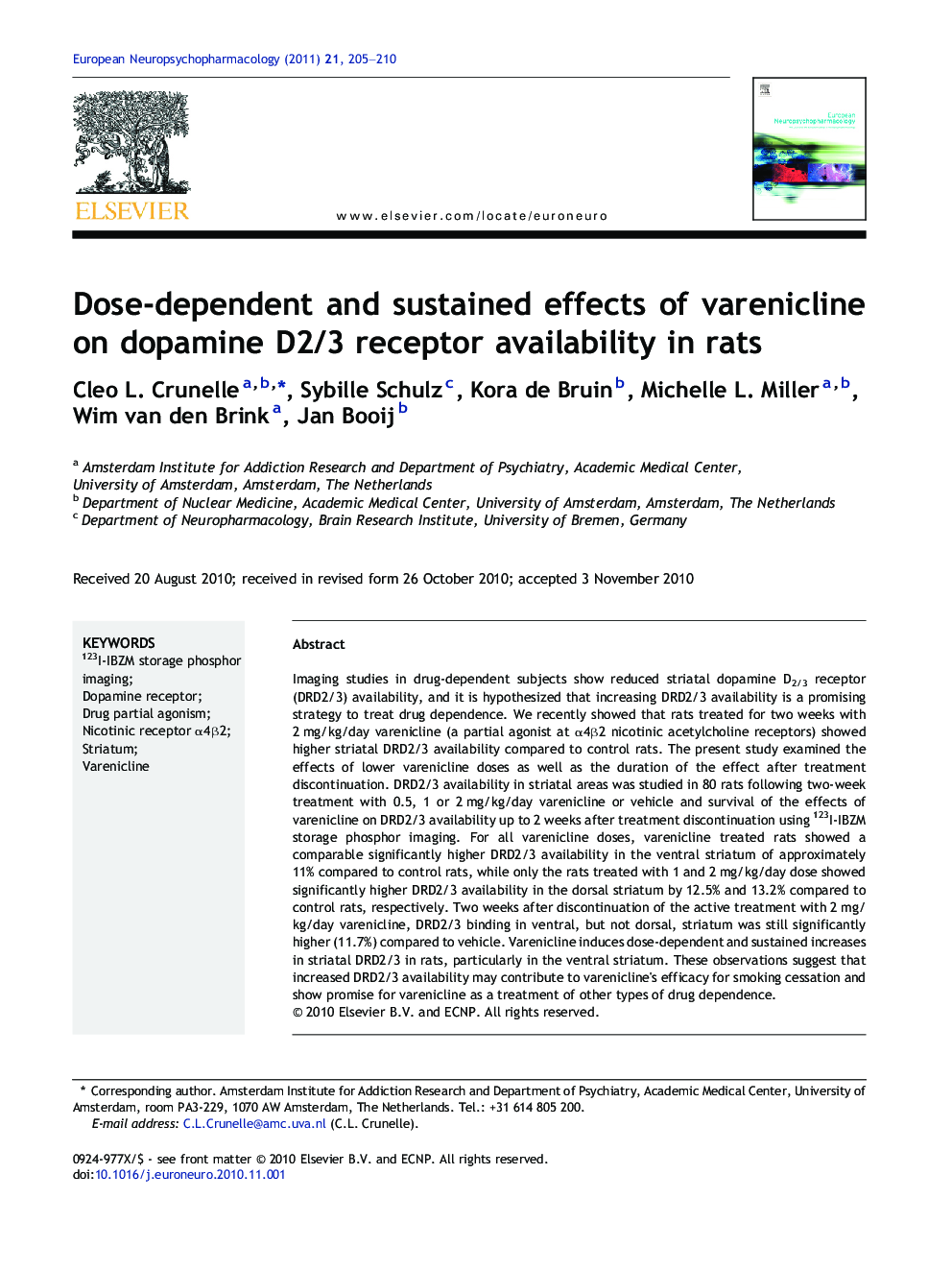| Article ID | Journal | Published Year | Pages | File Type |
|---|---|---|---|---|
| 10299450 | European Neuropsychopharmacology | 2011 | 6 Pages |
Abstract
Imaging studies in drug-dependent subjects show reduced striatal dopamine D2/3 receptor (DRD2/3) availability, and it is hypothesized that increasing DRD2/3 availability is a promising strategy to treat drug dependence. We recently showed that rats treated for two weeks with 2 mg/kg/day varenicline (a partial agonist at α4β2 nicotinic acetylcholine receptors) showed higher striatal DRD2/3 availability compared to control rats. The present study examined the effects of lower varenicline doses as well as the duration of the effect after treatment discontinuation. DRD2/3 availability in striatal areas was studied in 80 rats following two-week treatment with 0.5, 1 or 2 mg/kg/day varenicline or vehicle and survival of the effects of varenicline on DRD2/3 availability up to 2 weeks after treatment discontinuation using 123I-IBZM storage phosphor imaging. For all varenicline doses, varenicline treated rats showed a comparable significantly higher DRD2/3 availability in the ventral striatum of approximately 11% compared to control rats, while only the rats treated with 1 and 2 mg/kg/day dose showed significantly higher DRD2/3 availability in the dorsal striatum by 12.5% and 13.2% compared to control rats, respectively. Two weeks after discontinuation of the active treatment with 2 mg/kg/day varenicline, DRD2/3 binding in ventral, but not dorsal, striatum was still significantly higher (11.7%) compared to vehicle. Varenicline induces dose-dependent and sustained increases in striatal DRD2/3 in rats, particularly in the ventral striatum. These observations suggest that increased DRD2/3 availability may contribute to varenicline's efficacy for smoking cessation and show promise for varenicline as a treatment of other types of drug dependence.
Keywords
Related Topics
Life Sciences
Neuroscience
Biological Psychiatry
Authors
Cleo L. Crunelle, Sybille Schulz, Kora de Bruin, Michelle L. Miller, Wim van den Brink, Jan Booij,
